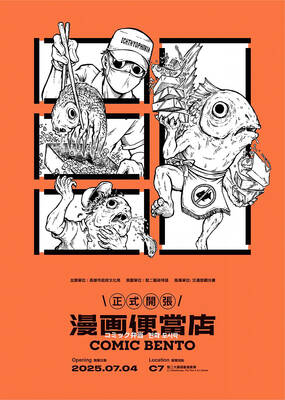Kris Kristofferson is alone onstage here at Pepperdine University in Malibu, California, and the ladies in the house could not be happier. They call out encouragement between songs, some of it mildly ribald, even though for the most part they are respectable women whose knicker-flinging days are deep in the past. But they still remember the bare-chested man who smooched with Barbra Streisand in A Star Is Born, back in 1977. They remember Jesus Was a Capricorn, and Loving Her Was Easier, and Help Me Make It Through the Night; they remember Kristofferson's medallion-man physique, his sexy growl, his silver-flecked beard and come-hither eyes. Apparently, it's still an intoxicating brew. My own date - who has campaigned, shall we say, aggressively for my plus-one ticket - is here to see one man and one man only. And it isn't me.
On stage, Kristofferson sings plaintively in his untutored baritone before clamping his mouth around his harmonica and - yikes! - emitting an ear-splitting off-key note, followed by a splutter, a laugh and the meek excuse, "Wrong goddamn harmonica!" It's the kind of moment that gets people yanked off stage at amateur night, but this audience is more forgiving.
Pepperdine, a conservative university, isn't a place one associates with a left-winger like Kristofferson, who is on first-name terms with Daniel Ortega. For a start, the dean of its law school is a former nemesis of Bill Clinton's - hence my question when Kristofferson and I meet before the show: "So, have you and Ken Starr had your summit yet?" Kristofferson laughs. "Oh God, every time I'm here I think they're gonna get me! But, no, I have a son here, and my wife went here, too - though, man, I do sometimes feel out of place."

PHOTO: AP
Like a lot of famous people, Kristofferson seems smaller in real life (he is about 174cm), and the neatly trimmed beard and hair are making the transition from silver to white. He is 71 and looking good on it, despite having had heart-bypass surgery a few years ago. He is smart, poetic and witty in a dry, southern way, and seems to have absolutely no pretensions about himself.
Kristofferson always saw himself first and foremost as a songwriter. "None of the other stuff would ever have happened if it wasn't for the songwriting. I've come to appreciate how special a song is compared to other art forms, because you can carry it around in your head and your heart and it remains part of you. It just comes as natural as a bird to me, always did. It's the way singer-songwriters make sense of our lives."
Kristofferson moved to Nashville after leaving the army in 1965, and started pitching songs up and down Music Row. "I gotta tell you, I really didn't know if I was ever gonna sell any songs for a long time. I figured I was in it for me and whatever satisfaction I could get out of it. But eventually it got so I could make a living."
It took a long time - five years - but by the time his material caught on, he was selling songs to the biggest names in town. Sunday Morning Coming Down went to Johnny Cash after Kristofferson landed a helicopter on Cash's lawn to catch his attention. Waylon Jennings recorded The Taker. Me and Bobby McGee went to Roger Miller, whose version then fell into the hands of Janis Joplin, for whom it was a hit, her biggest ever, in the immediate aftermath of her death in 1971.
In his heyday, Kristofferson wrote songs for so many people that by 1972 he almost single-handedly swept the Grammy songwriter awards. "I ended up being friends with all my heroes," he recalls wistfully. "Lefty Frizzell, George Jones, Johnny Cash - it was incredible." In the process he became a star in his own right.
They are dropping like flies these days, his old pals.
"And it's only gonna get worse!" he laughs.
He and Willie Nelson are still standing, though.
"He was my hero when I came into town in 1965, and he's probably my closest friend right now - saw him last night. You know, he didn't even have a beard back then. I had the very first beard in all of country music. And he used to give me a lot of shit for it!"
The beard was an accident, Kristofferson says. "I had pneumonia and I had to go into hospital for a week, didn't shave the whole time. And when I came out, some magazine took a picture of me and called it 'the new face of country music.' Ever since then Willie, too, has just looked as wild as heck."
Kristofferson was not to the Nashville manner born. Born in 1936, he grew up in a conservative Texas military family, the eldest son of an army pilot, and he excelled at the things soldiers' sons are expected to excel at before they, too, join up. He was a fine athlete, a college frat boy, and he won a Rhodes scholarship to Oxford, where he studied English at Merton College.
The move to Nashville didn't please his parents: he had reached the rank of captain by then, with a pilot's license and the prospect of a teaching post at West Point military academy. Turning all that down prompted a 25-year period in which he exchanged not a word with his mother. "The general [Kristofferson Sr] wasn't as shocked by it as the general's wife," he says. "Country music at that time was held in very low esteem outside of the south - 'shitkicker music' - but I bought every one of those old Hank Williams singles, old 78s, when they first came out. I'm old enough that his death was a real blow to me."
If becoming a sought-after Nashville songwriter was hard, becoming a movie star proved easy. Kristofferson's first experience was on Dennis Hopper's calamitous The Last Movie, in 1971. "We were down in Peru in this old Inca village, and Dennis was as crazy as he ever was. I mean, I see the guy he's mellowed into now, doing his retirement-fund commercials on TV, and I love Dennis, but back then he was" - and here his voice assumes an awed tone - "the most self-destructive guy I had ever seen! He got a priest defrocked because he got him involved in some kind of weird mass for James Dean. He antagonized the military and all the politicians. It was crazy."
Cisco Pike, a year later, was easier. Kristofferson played a paroled folk singer blackmailed by Gene Hackman's narcotics cop. Lost to posterity for 30 years, it's the best movie he ever made. The only acting lesson he ever took, Kristofferson says, came from his old friend Anthony Zerbe: "'Enjoy yourself. Ignore the camera.' That was it."
Movies, music and marriage to Rita Coolidge in 1973 - they recorded four albums together - kept him busy for the rest of the decade. The apogee of his career came with the 1977 remake of A Star Is Born, in which Kristofferson is the only compelling figure.
By that time he was, like his character, a full-fledged boozehound. "I had a half-gallon (about 1 liter) of Jose Cuervo in my trailer and they never let it empty. They just kept coming back in and filling it up, same half-gallon bottle. I don't know how much I was drinking, but it was a lot, and I had to quit it soon after. Doctor said my liver was the size of a football and that if I didn't quit, I was gonna kill myself. I had a new little daughter, so I quit. I drink wine today, but at the time I just went cold turkey. It was probably harder on the people around me than on myself."
Talking of drinkers, Kristofferson took major roles in Pat Garrett and Billy the Kid and Convoy, two of the films that nearly killed Sam Peckinpah.
"I'll tell ya what - he was on the way out. When we were on Convoy, they tried to fire him, and I told them I'd walk, too, if they did. And I guess I was hot enough then that they gave a shit. But afterwards I'm walking out of there back to my truck and Peckinpah comes out and says, 'Goddamn you, ya stupid sonofabitch, I was almost outta here and you dropped me back in this shit!'"
Lisa, Kris' third wife and his manager, shows up just as we are broaching politics again. It's showtime, so we never get to talk about Janis Joplin (whom Kristofferson dated), or the Highwaymen (the band he formed with Johnny Cash, Willie Nelson and Waylon Jennings), or John Sayles (who directed him in Lone Star in 1996). But Kristofferson gets in a parting shot about Iran-Contra and the war in Iraq. "Iran- Contra! We should have jailed all those guys forever back then, and we wouldn't be where we are right now - because it's the same guys now, the same 20 guys!"
The next time I see him, he's singing Help Me Make It Through the Night. He doesn't need our help.

From the last quarter of 2001, research shows that real housing prices nearly tripled (before a 2012 law to enforce housing price registration, researchers tracked a few large real estate firms to estimate housing price behavior). Incomes have not kept pace, though this has not yet led to defaults. Instead, an increasing chunk of household income goes to mortgage payments. This suggests that even if incomes grow, the mortgage squeeze will still make voters feel like their paychecks won’t stretch to cover expenses. The housing price rises in the last two decades are now driving higher rents. The rental market

Fifty-five years ago, a .25-caliber Beretta fired in the revolving door of New York’s Plaza Hotel set Taiwan on an unexpected path to democracy. As Chinese military incursions intensify today, a new documentary, When the Spring Rain Falls (春雨424), revisits that 1970 assassination attempt on then-vice premier Chiang Ching-kuo (蔣經國). Director Sylvia Feng (馮賢賢) raises the question Taiwan faces under existential threat: “How do we safeguard our fragile democracy and precious freedom?” ASSASSINATION After its retreat to Taiwan in 1949, the Chinese Nationalist Party (KMT) regime under Chiang Kai-shek (蔣介石) imposed a ruthless military rule, crushing democratic aspirations and kidnapping dissidents from

It looks like a restaurant — but it’s food for the mind. Kaohsiung’s Pier-2 Art Center is currently hosting Comic Bento (漫畫便當店), an immersive and quirky exhibition that spotlights Taiwanese comic and animation artists. The entire show is designed like a playful bento shop, where books, plushies and installations are laid out like food offerings — with a much deeper cultural bite. Visitors first enter what looks like a self-service restaurant. Comics, toys and merchandise are displayed buffet-style in trays typically used for lunch servings. Posters on the walls present each comic as a nutritional label for the stories and an ingredient

Fundamentally, this Saturday’s recall vote on 24 Chinese Nationalist Party (KMT) lawmakers is a democratic battle of wills between hardcore supporters of Taiwan sovereignty and the KMT incumbents’ core supporters. The recall campaigners have a key asset: clarity of purpose. Stripped to the core, their mission is to defend Taiwan’s sovereignty and democracy from the Chinese Communist Party (CCP). They understand a basic truth, the CCP is — in their own words — at war with Taiwan and Western democracies. Their “unrestricted warfare” campaign to undermine and destroy Taiwan from within is explicit, while simultaneously conducting rehearsals almost daily for invasion,